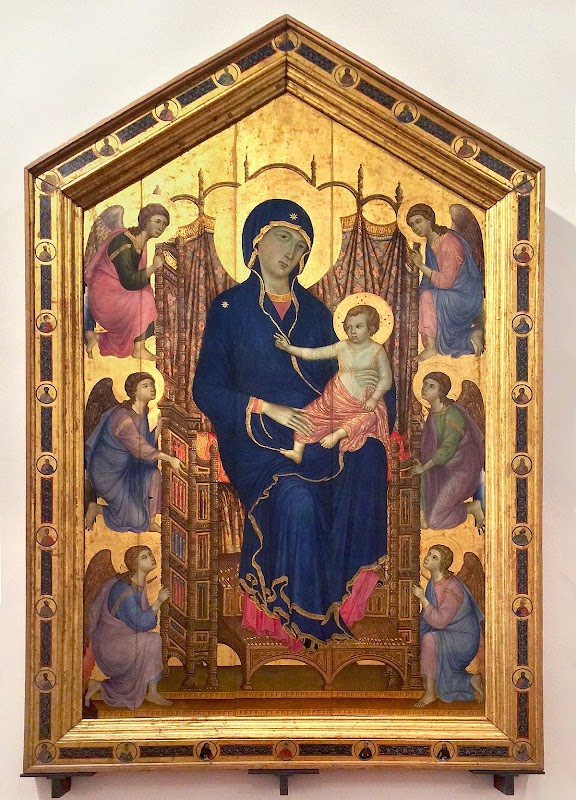Here is the 6th century Greek Monastery of St. Catherine at the foot of Mount Sinai in the Egyptian desert. Who knows, but perhaps this is the precise place where the Hebrews camped, while Moses went up to receive God's Law. I imagine the monks who live and pray here feel a great thrill when they chant this psalm written many centuries ago:
I cry aloud to the Lord,
He answers from his holy mountain.
Well, here's the mountain of which that third psalm speaks. But I'm getting ahead of myself.
Verses 1-3: What a terrible predicament the psalmist is experiencing. We don't know exactly the circumstances, but this is one unhappy fellow. Trouble seems to be assailing him from all sides. How lonely he sounds. The little couplet of words, "How many" appears three times in the opening lines. He even knows what the gossips are saying about him: "He's without help or hope."
Verses 4-5: But as quickly as he has jumped into a lament in the opening verses, here, the psalmist shifts his emotional gears announcing his hope is in God. He calls a shield. A shield can preserve a life even if the arrows are flying out of the sky. He calls God his glory — the bright light that keeps him from being downcast, powerless, depressed. God is the brightness who enables him to lift up his head — to carry on. We've very likely met people like this over the years.
Then the psalmist tells us that he cries aloud. A cry comes from a deep, inner, pained place — a suffering place. The ancient Israelites didn't believe that God's presence was confined to a mountain — though it certainly seems that this mountain (Sinai) was a place of particular encounter with the divine. The psalmist announces that God doesn't leave him alone in his lonely struggle, but that God answers. In Psalm 62:2 the psalmist declares, "In God alone is my soul at rest; my help comes from him. He alone is my rock, my stronghold, my fortress: I stand firm."
Verses 6-7: I'm always glad when someone says: "I got a good night's sleep." Here, the psalmist tells us he's been sleeping quite well — not fitful, sporadic or worrisome. Contrast with the previous verses — who could do anything but toss and turn the night away with all those enemies? But better than the money-back-guarantee mattress, pillow or chemical sleep aid, the psalmist gives God the credit.
I appreciate how sometimes the psalmist can't help himself and keeps returning to his complaint, "I will not fear even thousands of people ranged on every side." We know this — chewing on all the old memories and resentments, slights and offenses. Sometimes it's as if we're under a spell of some kind — "Just let it go" is impossible sometimes.
Verses 8-9: Here the psalmist lapses back into his resentment, asking God to "arise." Does the Christian recall Christ's bright rising out of our dark underworld (our unconscious place)? But this psalmist fellow wants God to rise up to hit his enemies in the face, to knock out their teeth. But Jesus doesn't allow for this. I'm so disappointed when I encounter Christians who think this way. They often don't know themselves; don't hear themselves. Their lack of self-knowledge leaves me slack-jawed. Rather, by forgiveness, I am to ask Christ-God to rise up to heal my enemies, to restore them, to evolve them.
Of course, (and we'd best start to get this if we're to take even baby steps into Christ's mind) — inner enemies might well be more dangerous than outer — hearts full of weapons and war, hating other people, buying into stupidity and lies, staying content in my bubble-world. Oh, this stuff is much more dangerous to the soul than an enemy talking smack about me.









